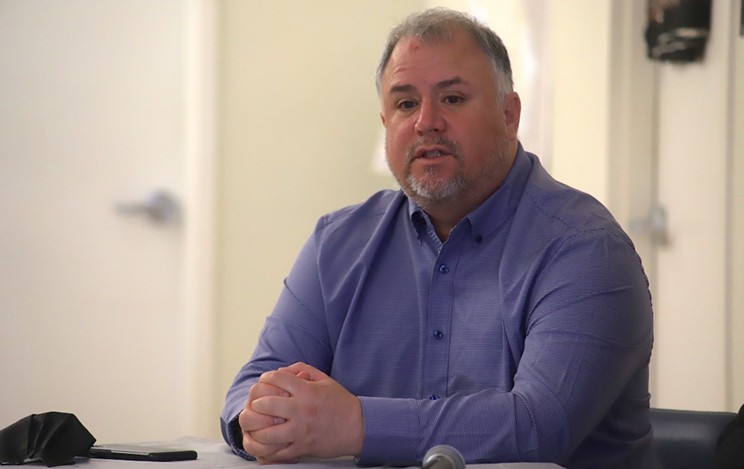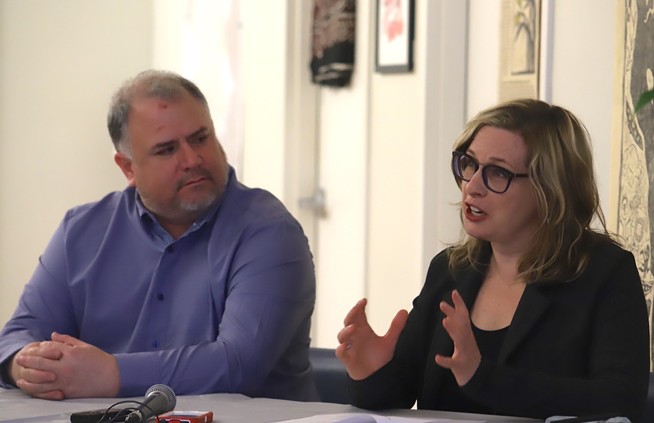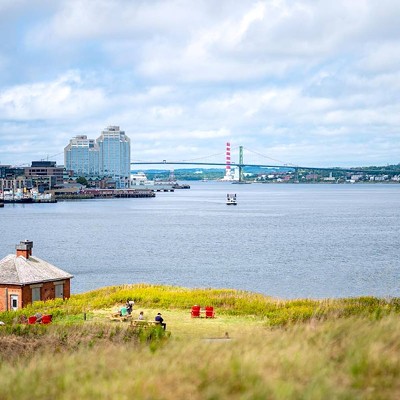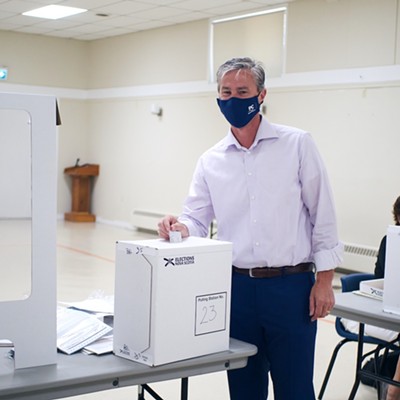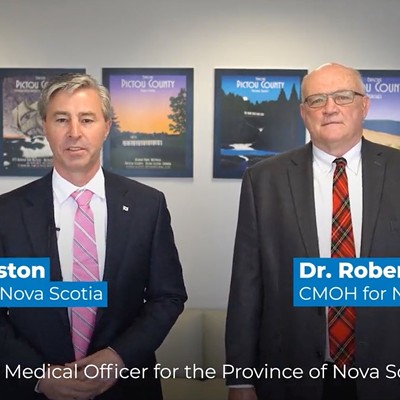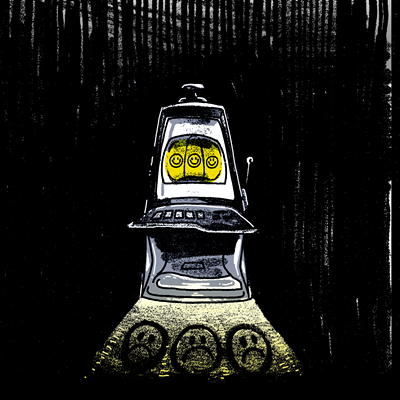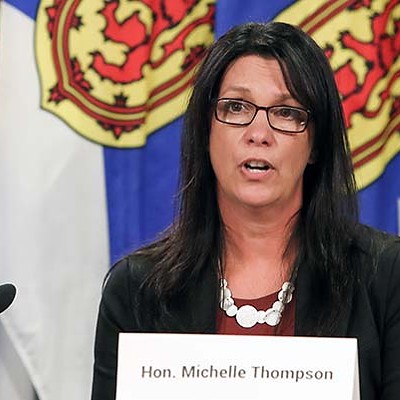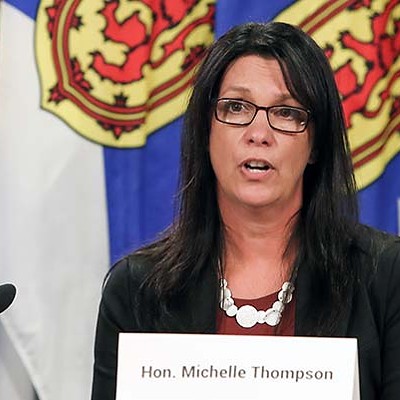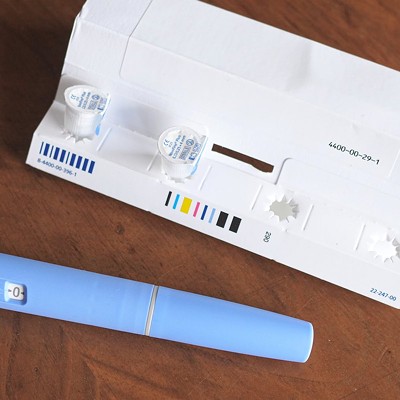Over the last six years, more than 250 Nova Scotians have died of drug overdoses. Across the entire country in that time, more than 25,000 people have died of overdoses, largely due to a drug supply tainted by substances like fentanyl.
“In Canada we have two public health emergencies: the COVID-19 pandemic and the poisoned drug supply crisis,” says Gord Johns, a member of parliament from British Columbia. The well-spoken Courtenay-Alberni MP and mental health and addictions critic for the federal NDP is a force to be reckoned with in the House of Commons, often speaking out against issues like reconciliation, climate change and most recently drug overdoses, when he introduced private member’s bill C-216 in December 2021.
But on Monday morning, Johns was far from his Vancouver Island riding. At the provincial NDP’s Dartmouth North constituency office on Wyse Road, Johns set political jargon aside to speak with teary eyes of the friends he’d lost to overdoses. “Three years ago I didn’t know anybody who died of a poisoned drug supply. Just in the past year I know six people, personally,” he said, listing some of them. “My friend Judy, I grew up with Judy, she was a recreational drug user. Another friend of mine, he was a fisher and my son’s lacrosse teammate’s dad. A couple of my friends’ kids. It’s pretty serious.”
Bill C-216 would amend the Controlled Drugs and Substances Act to decriminalize personal possession of street drugs like heroin and some opioids in small quantities. It would also establish a safe, “unpoisoned” supply of drugs for Canadians, and would expunge records for personal possession.
“This crisis is exploding, especially in my home province, where we had over 2,200 deaths in 2021 alone,” says Johns. “Where I live, I’ve never used hard drugs and I can get hard drugs faster than I can fill a prescription at a pharmacy.”
While Halifax has yet to see the explosion of opioid deaths that Vancouver or Toronto have, Johns says, “we are seeing the numbers skyrocket, especially as you travel east. We saw Ontario, the rates of overdose deaths go up 60 percent since COVID-19.”
Susan LeBlanc, who represents Dartmouth North in Nova Scotia’s legislature, says the dozens of opioid overdoses in the province are significant. “These are friends and family members and community members who have died preventable deaths,” LeBlanc says, seated beside Johns. “One overdose is too many. And the fact is that it will move across the country, and we need to be ready for it. And we could do better in Nova Scotia by being ready before it happens, and have some things in place so we can take the problem head-on and address it.”
The stigma surrounding substance addictions needs to change, too. “It’s not just a war on drugs, it’s a war on drug users,” Johns says. “We need to look at them as people that are suffering instead of criminals.”
Earlier Monday morning, Johns spoke with clients at Brunswick Street Mission about their challenges. “I heard from them loud and clear that there’s not enough space for detox, there’s a waitlist for detox,” he says. “There’s huge gaps when it comes to treatment. It’s not there. The system is completely underfunded.”
Those who’ve recovered from addictions also face stigma for past drug charges, hence the expungement part of Bill C-216 that would remove such charges from criminal records. “It’s a huge barrier for housing, for employment, for child custody, for travel,” Johns explains.
Johns says the systemic gaps have led to distrust of the system, especially among Black and Indigenous people. “People who use substances often have underlying trauma, they face many barriers,” Johns says. “There's many different reasons why people won't get help, but 75 percent of people [who overdose] are dying at home. It's an enormous amount of people that aren’t getting out and getting the help and the harm reduction supports that they need.”
The alternative models proposed by Johns’ bill are diverse, from pharmacists dispensing clean drugs to “ration clubs” to the medical model of addiction. Johns says if the bill makes it to the committee stage, specifics could be discussed including thresholds for just how much of a certain drug is considered a “small quantity.” The crux is “we need to make sure that it’s low-barrier,” he says: These programs need to be easier for people to access than tained street drugs.
LeBlanc says there are already pilot programs in Nova Scotia like the MySafe vending machine that doles out hydromorphone. “There's lots of other ideas like that. There's lockers, that pharmacists can use to put people’s supply in where they can pick them up,” she says. “So there's no face-to-face, the stigma is reduced that way.”
Johns’ visit to Halifax is one of many across Canada where he’s encouraging people to urge their local MPs to vote in favour of C-216. Nova Scotia’s current MPs are all either Conservative or Liberal—and the new Liberal/NDP supply and confidence agreement doesn’t explicitly include this bill—but that isn’t stopping the NDP’s Johns from making his pitch for public safety.
Johns says that in 2017, an expert task force was developed by Health Canada to make policy recommendations. “Every senior medical health officer, including Theresa Tam” supports creating a safe supply, he points out, although those recommendations have yet to be put into place.
“This strategy—the government has talked about it for five years,” he says. “This bill will ensure that that strategy is developed in 12 months, tabled in the House of Commons, with a strategy to respond to this tragedy.”
Overdose numbers make clear that the current patchwork of pilot programs and community-funded overdose prevention sites isn’t enough. “It doesn't matter who you are, the fentanyl is not going to discriminate,” says LeBlanc.
Johns hope politicians will put aside partisanship to support C-216 when it comes back to the House of Commons this spring. “Politicians are more worried about votes than they are saving lives,” he says. “And what we've seen is that these lives don't matter enough to politicians.”
Next up, the bill have its second hour of debate and then will be voted on if it goes to committee stage, where specifics like decriminalization amounts can be discussed.
“It is about harm reduction,” says Johns. “And I believe that we need to take that approach to people that are struggling with addiction, or people that use drugs or substances.”

